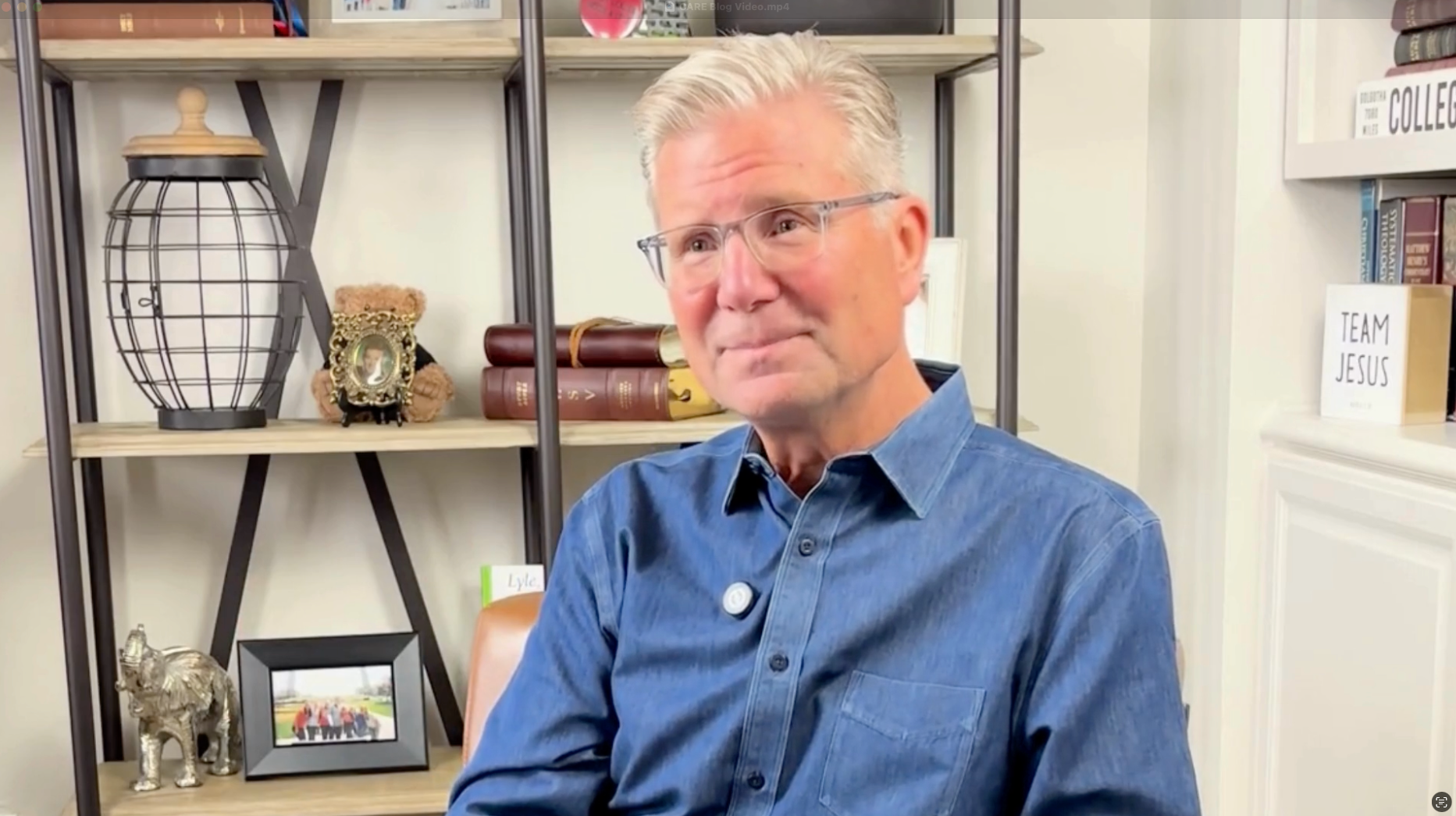info@integrus.org
8 Traits of A Healthy Leader
By Tod Tanner, Integrus Leadership Coach
Leadership is a behavior that influences others and drives outcomes. A biblical example of someone who influenced those around him and drove outcomes is Nehemiah. He had a task in front of him in that the walls around Jerusalem were down. Nehemiah could have sulked about this, but he chose to influence those around him which yielded an outcome of the walls being rebuilt.
Our goal in this blog post is to examine the biblical leadership qualities of Nehemiah and discover eight traits that he embraced that can be embodied in the best church leaders today. We do not merely want to see what Nehemiah did in the past––we want to exam his actions and then see how today’s church leaders can embrace these biblical leadership qualities personally as well as on a church leadership team.

8 Traits of A Healthy Leader
1. Healthy teams have a heart for the work
One sign of bad church leadership is if a team does not have a heart for the task ahead. Leadership in the church requires being able to influence others or drive outcomes. Nehemiah was effective as a leader because he had a heart for the monumental task before him. Nehemiah, who was a cupbearer for the king, was going about his daily business. He encountered a friend and inquired as to the wellbeing of the Jewish remnant in Jerusalem. His friend informed him that things were not well as the protective walls around Jerusalem were down and the remnant was in dire circumstances. Upon hearing these words, he sat down, wept, mourned, fasted, and prayed for a number of days (Neh. 1:3-4).
I have a couple of questions for us. When is the last time that we have gathered with our leadership teams and asked God to break our hearts for those we serve? When is the last time that we have asked God to help us see those we serve through His eyes. Nehemiah was effective because he was broken hearted over what Jerusalem was experiencing. We can be as effective, but we must have a heart for the tasks that lay ahead. If we do not have a heart for the tasks, we are more apt to convince ourselves that we can complete the tasks in our own efforts and not depended upon His sovereign leadership.
2. Healthy teams have a heart of deference
Nehemiah was in a significant position of influence as cupbearer to the king. He would test the king’s food prior to the king receiving it. Even in this position, he understood that he was not in charge. The king was of a higher rank and God was the ultimate authority. We see this when we study his prayer found in 1:11. He asked God to hear the prayer of his servant and guide his words as he spoke to the king about the situation.
A sign of poor leadership in the life of a church team is someone jockeying for status. One team member can become fixated on making sure others know his latest accomplishment. When accolades are being had, this person feels the need to be front and center. Nehemiah would have none of this. He knew that he was at the mercy of the king’s blessing before he could go to Jerusalem. He also knew that the sovereign Father was ultimately in charge and begged God’s blessing upon the conversation with the king.
3. Healthy teams clearly understand their priorities
Even the best church leaders and teams can feel overwhelmed by the task at hand. These feelings often result in a sleepless night as we toss and turn while contemplating all that is ahead of us. Don’t worry, we are in good company. Nehemiah experienced the same thing. We find in Chapter 2 Nehemiah arriving in Jerusalem. Upon arrival he sees the wall in ruins. After three days of being there, he arose at night, spoke to no one and began to personally assess the situation (2:11-16). This is healthy in that he did not allow the magnitude of the task to paralyze him with fear.
The best church leaders and church teams do not allow the scope of the task to hinder their progress. Yes, we may loose sleep. We may needlessly concern ourselves with all that must take place. But, we do not allow ourselves to freeze up. Instead, we personally inspect all that is going on so that a plan can be developed. If a team does not clearly understand what is needed, it becomes next to impossible to influence others and drive outcomes.
4. Healthy teams have clearly defined goals
Nehemiah was a great leader because he clearly defined the goals. Upon returning from assessing the situation, he gathered others and communicated what needed to take place. He told them, “You see the trouble we are in. Jerusalem lies in ruins and its gates have been burned. Come, let’s rebuild Jerusalem’s wall, so that we will no longer be a disgrace” (2:17).
It is hard to believe that anyone could have walked away from this conversation and speculated what Nehemiah was asking for and why he was asking. Nehemiah summed up the problem as well as the solution in one concise sentence. A healthy church team will model this by striving to clearly define goals and influencing others to accomplish these goals.

5. Healthy teams are cohesive and unified
Nehemiah 3 is one of the most pivotal chapters in the book. We find here a list of people who actively began to rebuild the wall together. This is pivotal in that we do not see any distinctions in class, socio-economic standing or status. Everyone knew the task that needed to be completed and why it needed to be completed. We do not find a committee being developed that would study the issue and then report back in six months. Instead, people getting to work together.
Pastor, do you want to grow your influence? Ask the worship pastor if there is anything you can do to help him prior to the upcoming night of worship. Youth pastor, do you want to grow your influence? Ask the children’s pastor how you can pray for those in the children’s ministry. Ministry is not supposed to be something done in isolation. Ministry is something that is done together and it takes a team to pull off a healthy and Christ honoring ministry.
6. Healthy teams can face critics
It did not take long for the boo birds to arrive. The wall was being completed in and the critics arrived. Sanballat, one of the critics, became furious, began to mock the Jews and presented a variety of questions to those who would listen which were intended to demoralize those working (4:1-3). We can all testify to feeling the barbs of our critics and how much we did not enjoy that experience.
But, the criticism did not stop Nehemiah and his faithful crew from accomplishing God’s assigned task. Instead, the team “rebuilt the wall until the entire wall was joined together up to half its height, for the people had the will to keep working” (4:6). That was a team more concerned about fulfilling the God sized calling as opposed to listening to a small group of naysayers who were doing nothing to further the ministry.
7. Healthy teams stay focused
Sanballat and his friends were not to be deterred either. As the wall was nearing completion, they began to request individual time with Nehemiah. The goal of the meeting was to try and harm Nehemiah (6:2). His response to their request was, “I am doing important work and cannot come down. Why should the work cease while I leave it and go down to you?” (6:3).
That is focus and healthy church teams will have this kind of focus. How many of us are guilty of yielding precious time to things that are not going to further the call that the Lord has placed upon us. Instead, we need to focus upon the task and hand. We know that God has called us to the task and we have submitted to His calling. Let’s stay focused on Him and His calling and address secondary issues later.
8. Healthy teams are humble
“The wall was completed in fifty-two days . . . When all our enemies heard this, all the surrounding nations were intimidated and lost their confidence for they realized that this task had been accomplished by our God” (6:15-16). Did you notice who receive the credit? Nehemiah did not use his name here. He did not even use a personal pronoun. Instead, he gave complete credit to Almighty God.
The words humble and leader need to be synonyms. This is especially true for those involved in church leadership. If it was not for the grace of God, we would be in a mess. Jesus said, “Let your light shine before others in such a way that they will see your good works and glorify your Father in heaven” (Matt. 5:16). Anything good that we accomplish is a direct result of God’s goodness and healthy teams are always quick to point others to God.
We have a list of eight biblical characteristics of a healthy team. Let’s all take a moment to evaluate ourselves and our teams against this list. The areas in which we believe we are doing well, let’s thank God and ask Him to use us. The areas in which we struggle, let’s confess this as a team and ask God to change us and use us for His glory. A healthy church team is biblical and doable. We know this to be true because we see it in the book of Nehemiah.
SHARE THIS POST






































